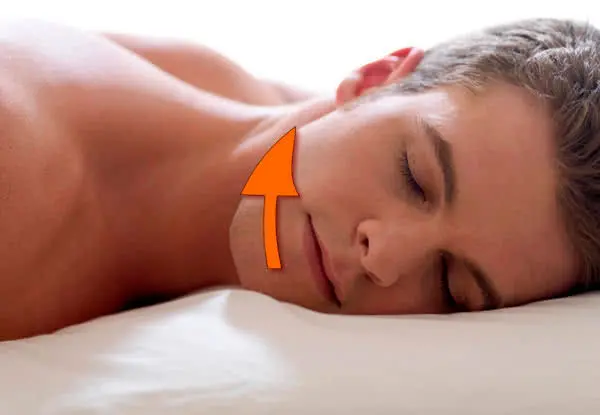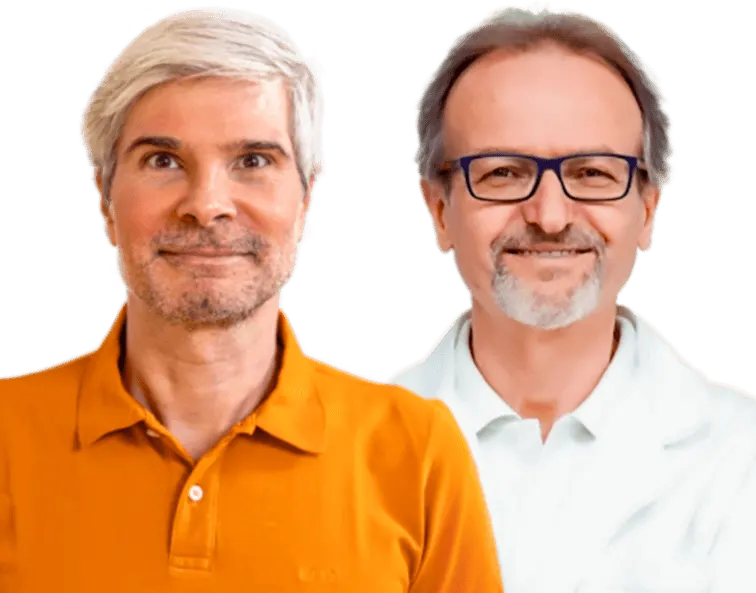Correct Sleeping Position

Few people are aware that sleeping in an incorrect position can trigger pain, affect jaw function, alter facial morphology, and negatively influence posture, nullifying the effectiveness of many treatments.
Those who sleep on their stomach (in a prone position) or on their side with their face pressed against the pillow exert constant pressure on one side of the face. This habit forces the jaw to deviate from its neutral position, subjecting the teeth and masticatory system to prolonged stress.
Over time, this pressure can even change the shape of the face and compromise dental alignment.
Sleeping on the side with one arm positioned over the face, as if hiding the head under the armpit, can cause prolonged pressure on the jaw and maxilla, deforming the dental arch on the affected side and pushing the teeth inward.
It is possible to identify people who sleep in this position simply by observing their face and teeth: the dental arch alterations correspond to the point where the arm regularly presses on the cheek. Many are surprised when their usual sleeping position is recognized just by observing them, as a facial deformation is rarely associated with the sleeping position.
Any habitual and prolonged stimulation inevitably leads to an adaptation of the involved structure. In this case, however, the adaptation produces negative effects. Even if one changes position occasionally during the night, the damage remains evident and visible. If a prone position that traumatizes the jaw is combined with the consequences of a permanently misaligned Atlas, the situation becomes even more critical.
Many people wonder why, despite sleeping on a comfortable bed, they wake up more tired than when they went to sleep. Conversely, others seem to rest well even in less ideal conditions. The usual suspects in these cases are almost always the mattress and the pillow. We often meet people who have tried countless pillows and even several mattresses without achieving any improvement.
While good support is certainly essential for restorative sleep, the combination of poor sleeping posture and a misalignment of the upper cervical vertebrae can have extremely harmful effects. It is not uncommon for people to discover, even after investing thousands of euros in the best bed available, that their problems and pain remain unresolved. Often, those who undergo the AtlantoMed method report that, had they known about it earlier, they would have saved not only a considerable amount of money but also a great deal of pain.
An important aspect to consider is that the walls of veins, unlike arteries, are not rigid and tend to collapse. It is gravity, combined with the weight of falling blood, that keeps them open. When lying down, this support disappears, and the heart must generate all the pressure necessary to ensure proper blood circulation.
For this reason, lying on your back can exacerbate certain venous and circulatory problems. If you add vessel compression caused by a misaligned Atlas or axis and additional constriction from neck twisting to keep the head turned to one side for several hours, the consequences become easy to imagine.
A blockage of the upper cervical vertebrae limits head rotation to one side, forcing those who sleep on their stomach to keep their head turned always toward the side with greater mobility. This condition prevents alternating sides. Prolonged pressure on the masticatory system hinders blood circulation, traumatizes the teeth, gums, jaw joints, nerves, and muscles.
Since this situation is repeated every night for many hours, permanent damage to the masticatory system can develop over time: the teeth deteriorate, the jaw deviates, causing dental malocclusions, and negative repercussions manifest throughout the body.
However, it is reassuring to know that sleeping on your stomach does not alter the alignment of the Atlas.
The Most Common Symptoms of Sleeping in an Incorrect Position
It is important to emphasize that the listed disorders can have various causes, not necessarily linked solely to the position adopted during sleep. However, an incorrect position can significantly contribute to the appearance or worsening of the following symptoms:
- difficulty keeping the mouth open for a long time,
- cracked, misaligned, worn, mobile, hypersensitive teeth with exposed roots,
- gum recession and inflammation, periodontal pockets, and pyorrhea,
- jaw clicks and noises, difficulty and pain when opening and closing the mouth,
- facial muscle pain and tension, especially in the morning upon waking,
- pain and difficulty swallowing, moving the tongue, or even speaking,
- trigeminal neuralgia, headache, eye discomfort, tension, and eye pain,
- accidental and painful bites of the tongue, the inside of the cheek, or the lips,
- pain in the temples, ears, neck, back, lower back, legs, and postural anomalies,
- feeling of instability, vertigo, tinnitus, buzzing or ringing in the ears, anxiety, and neurosis.
To get rid of these disorders, it is essential to learn to sleep in a correct position, allowing the jaw to move freely in all directions, without constraints or constant pressure.
After years of sleeping in an incorrect position, adapting to a new position can be challenging. However, the benefits obtained, both in terms of regained health and savings on dental expenses, will more than compensate for the effort.
Sleeping correctly on your back can, over time, naturally resolve many masticatory and skeletal issues.
Video Interviews on Insomnia
stories after Atlas realignment
Some Testimonials from the Forum
- Martaven: Better sleep: new life!
- Dyedory: Seeking the best yields results!... even for good sleep!
- Paolo da: I feel less hunched and sleep better!
- Italo: Goodbye headache, now I sleep and rest better.
- Scorta Fulvia: Headaches, improved sleep quality and life.
- Isa69: Found the solution for good sleep: I'm reborn!
- Other Testimonials: insomnia and pain
What People Say About Us
Beware of those who disguise a simple cervical manipulation as Atlas realignment and those who offer low-quality imitations of our method. The results speak for themselves: over 10,000 testimonials and reviews in various languages make us unique. Click to discover opinions, ratings, and authentic experiences shared by those who have experienced Atlas correction with Vibro-Resonance AtlantoMed:




